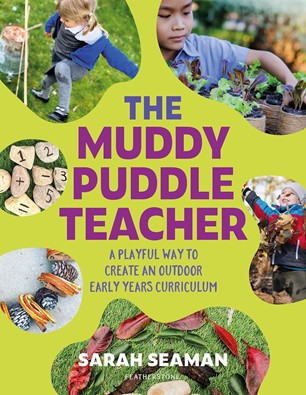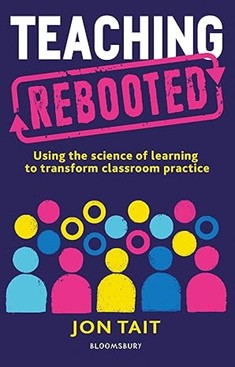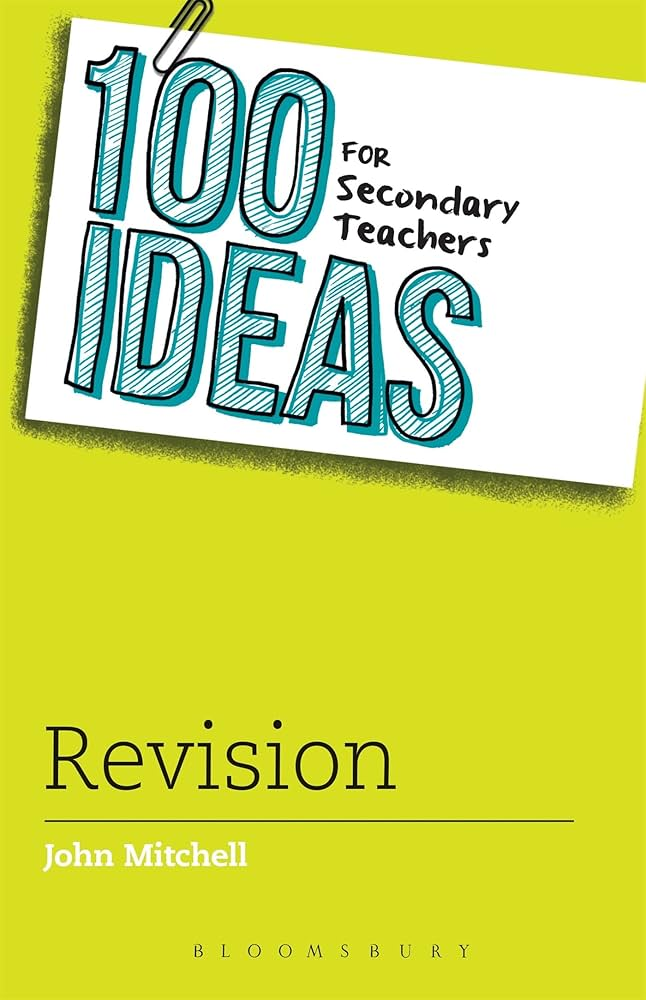Engaging with research can play an important role in helping you develop your own ideas and practice as an education professional. That’s why we’ve started Meddwl Mawr, a book and journal club designed to support you on your professional learning journey.
We’ll be publishing regular recommendations on this page covering a range of interesting topics, pointing you to some of the great content available on your free online library.
Make sure you sign up to our mailing list to hear about recommendations as soon as they’re published.
We’re keen to hear about any books or journal articles you’ve found interesting, enjoyable or useful on EBSCO. If you have a recommendation that you would like to share, then please
Your recommendations
February 2026
The Muddy Puddle Teacher: A playful way to create an outdoor Early Years curriculum by Sarah Seaman
Drawing on extensive experience in child-led, outdoor learning, Sarah Seaman brings a practical and deeply informed perspective to nature-based education. A former primary teacher, outdoor learning specialist, and accredited CPD trainer, Seaman works closely with schools to embed outdoor learning in meaningful ways. Shaped by her own experience of ADHD and dyslexia, her inclusive approach is designed to reach learners with diverse needs, particularly those who learn best through movement, exploration, and hands-on experiences.
The Muddy Puddle Teacher is packed with imaginative outdoor activities that link naturally to curriculum areas such as Maths, Literacy, Science, and PSHE. Using readily available natural and recycled materials, the ideas are flexible enough to work in any outdoor setting and are both sustainable and affordable. Each activity encourages curiosity, creativity, and active learning, helping children step away from digital screens and reconnect with the natural world.
The Muddy Puddle Teacher approach has already made a significant impact in hundreds of schools across the UK and beyond, supporting children who thrive outside conventional classroom methods, and this book captures its core principles clearly and effectively. Built around the Three Muddy M’s - mother nature, mental health, and getting children moving, it offers inspiration alongside practical guidance. Encouraging children to explore, discover, and play together outdoors, this book is a great resource for educators seeking engaging and purposeful learning experiences beyond the classroom.
January 2026
Teaching Rebooted: Using the science of learning to transform classroom practice by Jon Tait
Jon Tait is a long-serving educator and current deputy headteacher with over fifteen years of experience working across a range of secondary schools in the UK. Having led on teaching quality, staff development, and whole-school improvement, he brings a practical and well-informed perspective to the everyday challenges faced by teachers.
In Teaching Rebooted, he combines insights from educational research and cognitive science into a clear, accessible guide for teachers who want to improve classroom practice through a better understanding of how students learn. The book is structured around bite-sized summaries, classroom ideas, and reflective prompts that encourage teachers to think carefully about what they do and, importantly, why they do it. Tait explores key principles such as retrieval practice, dual coding, interleaving, and metacognition, pairing each with straightforward strategies that can be applied directly in lessons.
Central ideas around memory, practice, and student thinking are explained in a way that feels manageable rather than academic. Rather than overwhelming the reader with research, Tait focuses on how small changes to planning, questioning, and lesson design can lead to meaningful improvements in learning.
Reflection is a consistent thread throughout the book, prompting readers to revisit familiar routines and evaluate whether they genuinely support long-term understanding. This reflective focus makes Teaching Rebooted particularly valuable for professional development, encouraging discussion and self-evaluation. Clear, concise, and rooted in classroom reality, this book is well suited to teachers at any stage of their career who are looking to refine and strengthen their practice.
December 2025
100 Ideas for Secondary Teachers: Revision by John Mitchell
With over twenty years of experience working in secondary schools, John Mitchell delivers a refreshing and practical guide aimed at making revision meaningful. His creative strategies have earned him high praise within his school community, and in 2014 he was named by The Guardian as one of the top five history teachers in the UK.
This book offers a blend of inventive ideas, from brand-new activities to smart reinventions of classic techniques. Whether you’re an early-career teacher developing strong revision habits or an experienced educator looking to revitalise your practice, you’ll find a wealth of adaptable strategies.
Mitchell combines educational theory with strategies that have been tested in real classrooms, helping teachers build a culture where revision is woven into everyday learning rather than crammed into the weeks before exams. With adaptations of popular games like Connect Four and Run-around, this book reintroduces fun, interaction, and creativity into the revision process, building student confidence and improving outcomes. It aims to help maintain student focus while preventing revision from becoming mindless or overwhelming.
This is a great resource for any teacher looking to strengthen their revision techniques, boost student engagement, and bring fresh energy into their classroom. It’s practical and easy to implement approach makes it useful for teachers to apply in any classroom.
Cefnogi Pob Plentyn, edited by Nanna Ryder
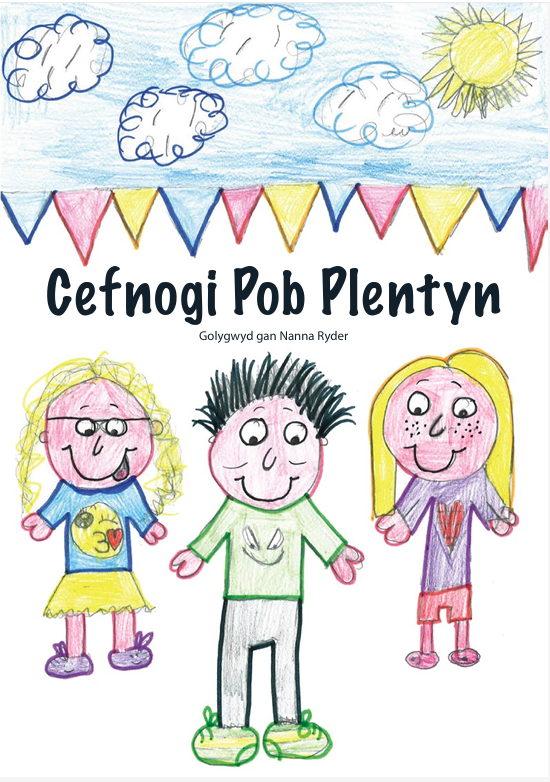
To celebrate the Welsh language Commissioner’s ‘Defnyddia dy Gymraeg’ campaign, we are pleased to recommend the Welsh language book ‘Cefnogi Pob Plentyn’. Edited by Nanna Ryder, this publication brings together the expertise, research and lived experiences of a number academics specialising in primary education, social inclusion and early childhood studies. The book provides a comprehensive overview of policies, philosophy and practice in a distinctly Welsh context, exploring specific subjects including learner development, children’s rights, additional learning needs and the importance of play and creativity.
Many of these themes align closely with the standards expected of EWC registrants as outlined in the Code of Professional Conduct and Practice, particularly in relation to safeguarding, professional values and principles, learner wellbeing and professional collaboration.
Each chapter concludes with thought provoking discussion topics, case studies and links to further reading and resources, offering readers the opportunity to reflect on key issues and explore them in greater depth.
‘Cefnogi Pob Plentyn’ has been praised for its insightful content and for supporting the development of appropriate Welsh-language terminology for educational practitioners working through the medium of Welsh. As a proudly bilingual organisation, the EWC is committed to promoting the Welsh language and actively seeks opportunities to do so throughout our work. Read more about our commitment.
November 2025
Getting the Buggers to Behave by Sue Cowley
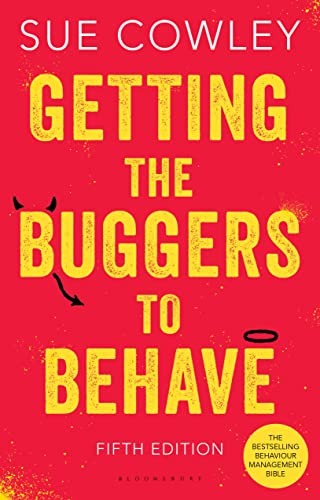
Getting the Buggers to Behave by Sue Cowley, internationally bestselling author and renowned teacher trainer, is a practical guide to mastering classroom behaviour management. Drawing on her extensive experience across early years, primary, and secondary education, Cowley provides down to earth, experience-based advice that speaks directly to the realities of teaching.
This updated edition is packed with tried and tested strategies to help teachers create calm, focused, and positive learning environments. Whether you’re preparing for your very first class or navigating the challenges of difficult behaviour, Cowley offers straightforward, actionable techniques that can be implemented immediately without unnecessary complex planning.
Through real-life examples and case studies, she explores how to set clear expectations, shape your personal teaching style, and thrive in even the most demanding school settings. Cowley also takes a close look at the use of incentives, the benefits of restorative justice approaches, and the best ways to handle the ten most common forms of misbehaviour found in classrooms today.
She combines humour, empathy, and professional insight to help teachers feel more equipped and in control. This book is an essential read for teachers, early career educators, and anyone seeking to build their confidence and effectiveness in behaviour management. It is a great resource for ongoing teacher training and professional development.
October 2025
Fun Games and Activities for Children with Dyslexia: How to Learn Smarter with a Dyslexic Brain by Alais Winton
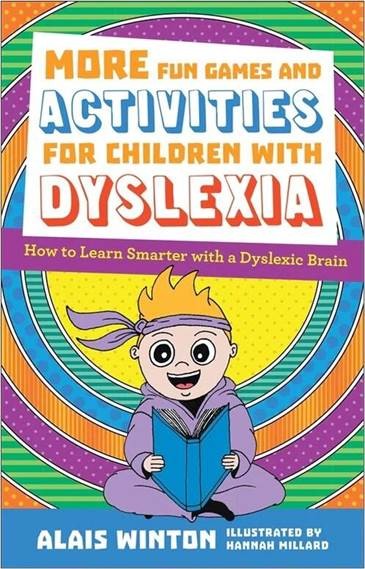
As we mark Dyslexia Awareness Month this October, this month’s Meddwl Mawr recommendation highlights a valuable resource for educators: Fun Games and Activities for Children with Dyslexia: How to Learn Smarter with a Dyslexic Brain by Alais Winton.
Drawing on her own experiences as both a dyslexic learner and educator from Wales, Winton presents a collection of creative, hands-on activities designed to support children who learn differently. Rather than focusing on challenges, the book offers practical ideas for helping children engage with learning in ways that suit how their brains work best.
In recent years, Wales has made progress in improving support for learners with dyslexia and broader Additional Learning Needs (ALN). This is reflected through the Additional Learning Needs Code for Wales 2021, which offers guidance on early identification and provides a clear framework for creating personalised Individual Development Plans (IDPs) tailored to each learner’s needs.
Winton addresses this through exploring a variety of learning styles such as visual, musical, physical, and social, providing activities that feel natural, engaging, and easy to implement in both mainstream and neurodiverse classrooms. These approaches not only help children absorb information more effectively but also foster confidence without adding pressure.
The activities range from spelling games, to memory-enhancing tasks involving rhythm, repetition, and movement. Each one is designed to make learning more accessible, enjoyable, and personalised. The book’s clear structure and adaptable format makes it helpful for teachers to modify activities to suit different age ranges, abilities, and classroom dynamics.
September 2025
A Manifesto for Excellence in Schools by Rob Carpenter
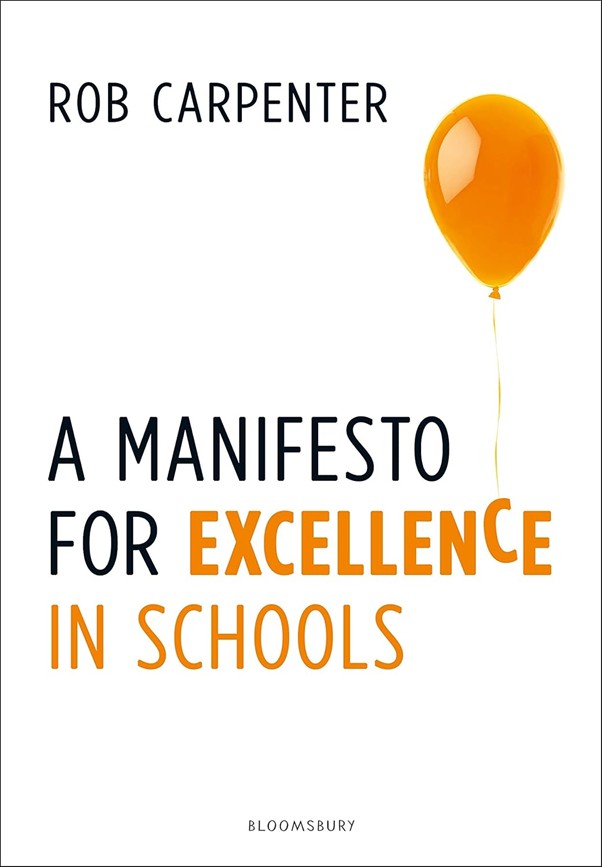
Rob Carpenter’s A Manifesto for Excellence in Schools is a passionate and inspiring guide for educators and leaders. Drawing on his extensive experience as an Executive Headteacher, educational speaker and CEO of the Inspire Partnership, Carpenter shares his journey in transforming underperforming schools into thriving learning communities. He offers a practical, values-driven roadmap for creating inclusive, high-performing environments where every learner is nurtured and encouraged to succeed.
Combining principle and practice, the manifesto highlights real-life examples, and thoughtful reflection, and outlines how teachers and leaders can create meaningful learning journeys that connect with learners' lives. Firmly believing that the quality of teaching and leadership is the key factor in raising standards, the author shares a wealth of actionable strategies to help educators and leaders design learning experiences that promote collaboration, and cultivate critical thinking to foster long term meaningful engagement. Rather than focusing solely on attainment, Carpenter advocates for a more holistic approach in education, putting collaboration and creativity at the heart of school improvement.
A Manifesto for Excellence in Schools is a compelling read, which ignites thought provoking discussions with its insight and evidence-informed practice theories. Suggesting new ways to ensure that all learners succeed, the manifesto advocates that learning journeys are connected to moral purpose and positive learning habits which are integral to learners and young people in understanding the world around them.
July 2025
Educating Outside: Curriculum-linked outdoor learning ideas for primary teachers by Helen Porter
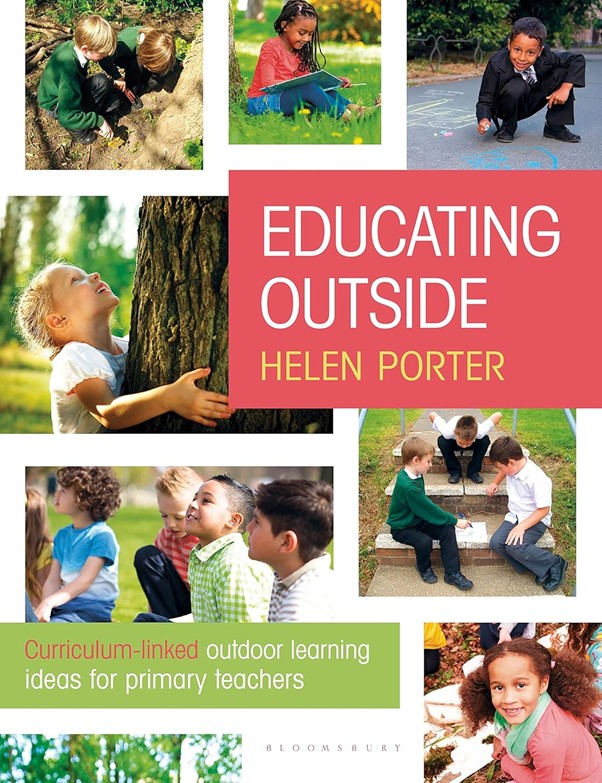
This book is aimed at helping teachers to embrace the concept of outdoor learning, arguing that this type of learning is more relevant and memorable, potentially leading to deeper learning experiences. Though outdoor learning is widely recognised for its benefits, its consumption often declines as learners and young people progress through their education. One reason for this is that educational practitioners frequently experience expansion within their roles with growing workloads and mounting accountability pressures. The requirement to implement a growing range of new initiatives, while simultaneously embedding the Curriculum for Wales often allows little time for strategic thinking and planning. Educating Outside seeks to offer a practical solution to this by outlining a variety of outdoor learning ideas, the strategies behind them and their desired outcomes to enhance and enrich the typical classroom experience across the whole of the curriculum.
The book offers clear, structured lesson plans tied to specific curriculum goals, allowing easy implementation. Each includes a list of required resources, including the logistics that need consideration, the desired learning outcomes, including the development of softer skills, as well as photos to guide the process. All activities are designed to be carried out within the school grounds, eliminating the need for extensive risk assessments, unnecessary time consumption, and additional costs. Integrating the natural environment into various areas of learning and adopting a learner-led approach, the author argues that this further encourages curiosity, autonomy and engagement. The aim of this style of learning is to support learners deepen their understanding of core subjects beyond the confines of the classroom through holistic practices fostering self-awareness, sustainability and an understanding of the environment in which they live.
For teachers looking to infuse their classroom techniques with more outdoor learning opportunities, this book is a great resource that not only provides innovative lesson ideas but also supports the Curriculum for Wales’s vision of outdoor learning as a key pedagogical approach.
June 2025
We are delighted to be able to provide free access to four of Dean’s bestselling books, through EBSCO, to our registrants. The books are all highly readable and combine humour, research, and real-world relevance and help to make neuroscience both understandable and entertaining.
The Idiot Brain: A Neuroscientist Explains What Your Head Is Really Up To
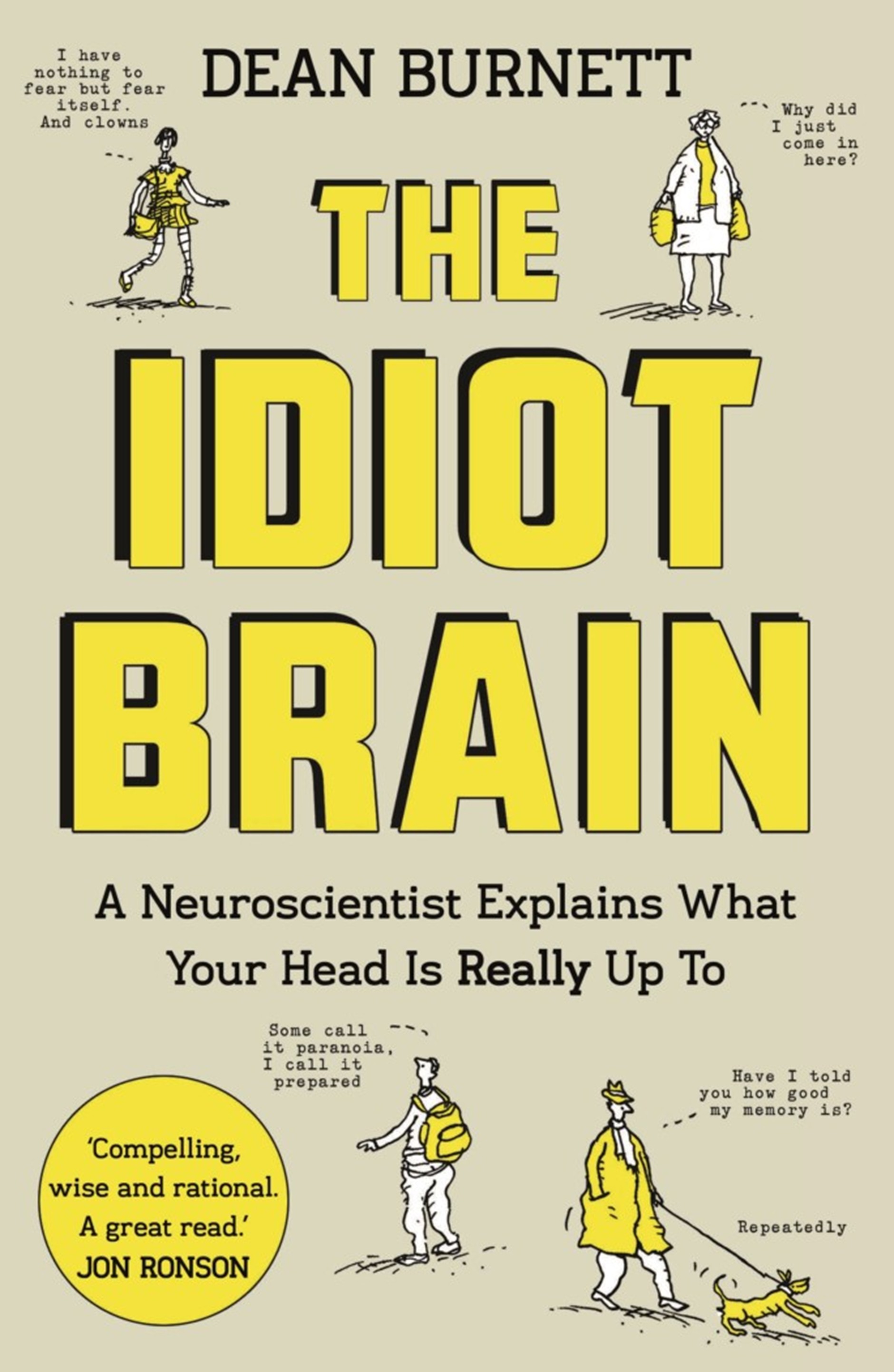
In his first book, published in 2016, Dean delivers a smart, funny, and accessible look at how our brains really work- not as perfect machines, but as messy, flawed, and fascinating systems. He unpacks topics such as memory, fear, intelligence, and decision-making in a way that’s both insightful and easy to grasp.
The Happy Brain: The Science of Where Happiness Comes From, and Why
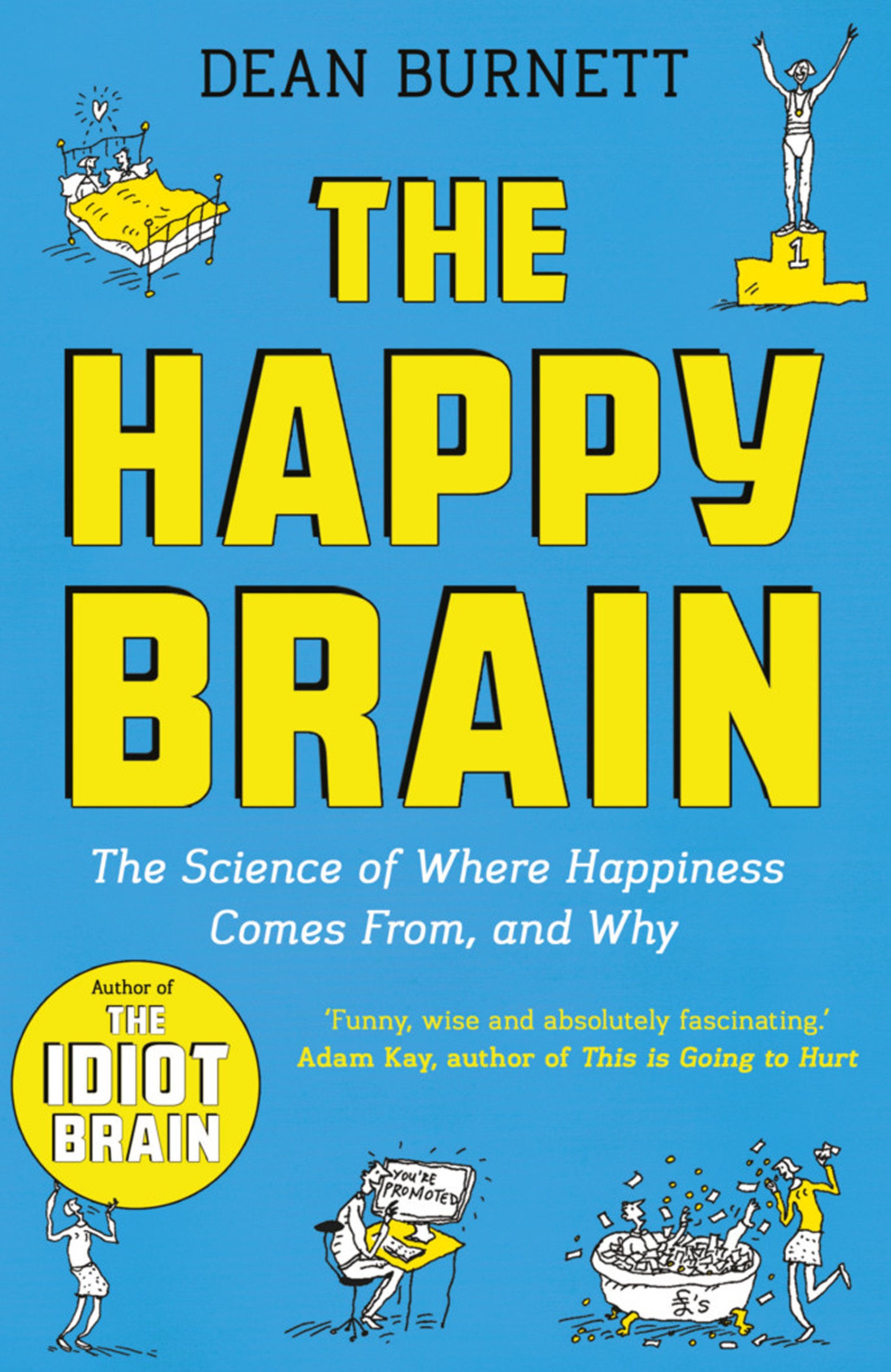
The Happy Brain (2018) explores the science behind what makes us happy. Dean examines a wide range of factors -from upbringing and relationships to money, fame, and brain chemistry - demonstrating just how complex and personal happiness can be. Informative and full of humour, this book is highly recommended for anyone wanting to learn more about emotions, mental health and human behaviour.
Psycho-Logical: Why Mental Health Goes Wrong – and How to Make Sense of It
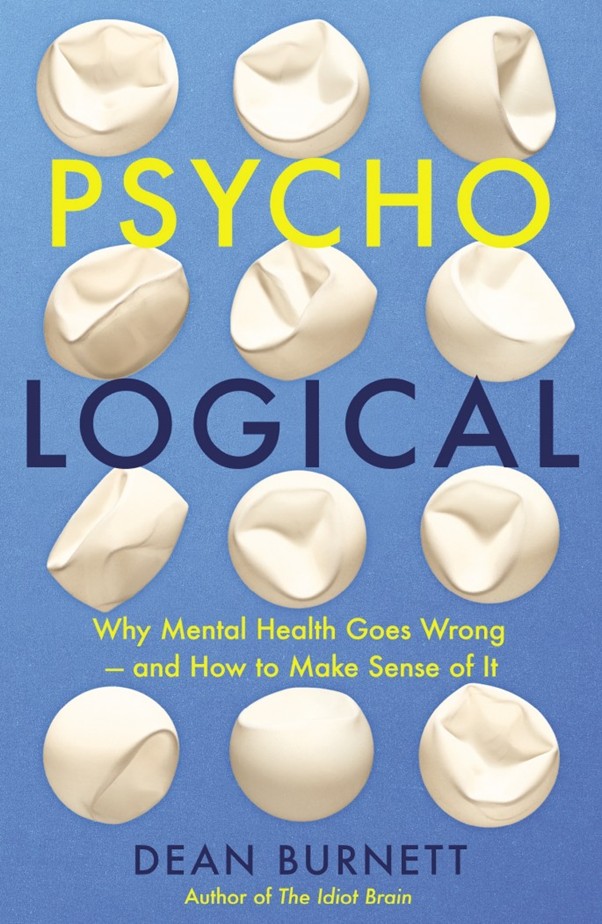
Dean’s third book, published in 2021, walks readers through how and why different mental health conditions develop, how brain function influences our emotions and behaviours, and why one-size-fits-all solutions rarely work. Throughout the book, Dean includes honest, first-hand accounts from people living with mental health conditions, grounding the science in real experience.
Emotional Ignorance: Lost and Found in the Science of Emotion
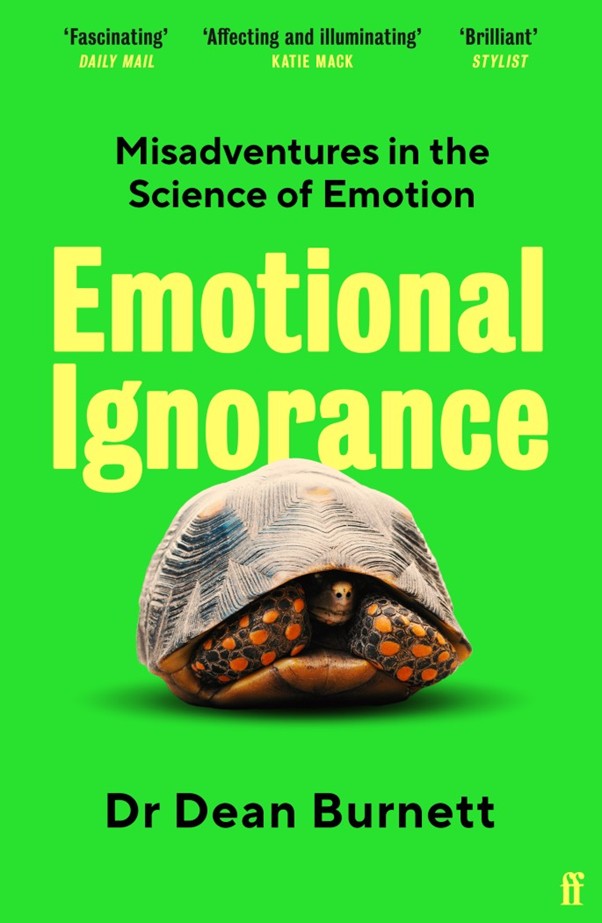
Written after the loss of his father during the COVID-19 pandemic, this book (published in 2023) was born out of profound personal loss. Combining scientific insight with personal vulnerability Emotional Ignorance considers the science of emotions. As well as providing powerful insights into the grieving process, Dean reveals whether things really were better in the old days, why doom scrolling is so addictive and how sad music can make us happier.
May 2025
Stepping into Senior Leadership: A guide for new and aspiring school leaders by Jon Tait
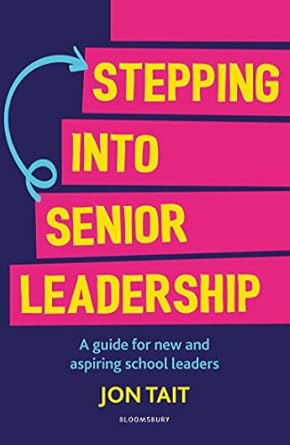
Whether you’re looking to refine your leadership skills or transition into a senior leadership role, Stepping into Senior Leadership is a must-read guide for educators at all stages of their career. Tait, a highly experienced and influential leader currently serving as Director of School Improvement and Deputy CEO at a multi-academy trust in North Yorkshire, brings a wealth of practical insights drawn from his extensive career in educational leadership.
The book is divided into four sections, covering a range of key topics for leaders and aspiring leaders in education: preparing for senior leadership, making the shift from middle management, leading teams, and supporting the development of others. Over 20 chapters, Tait simplifies complex leadership challenges and provides manageable, actionable advice, making it easy for educators to apply these lessons in their role.
Tait provides clear strategies for building strong connections with staff, including managing difficult conversations, maintaining accountability, and running effective meetings. He also offers actionable guidance for critical aspects of senior leadership, from creating a standout application and acing interviews to settling into a new role and establishing a vision for the future of the school. Tait encourages self-reflection throughout, offering tools to help teachers assess their personal leadership style. This book is a great resource for educators who aspire to take the next step in their leadership journey.
April 2025
The Trauma and Attachment-Aware Classroom: A Practical Guide to Supporting Children Who Have Encountered Trauma and Adverse Childhood Experiences by Rebecca Brooks
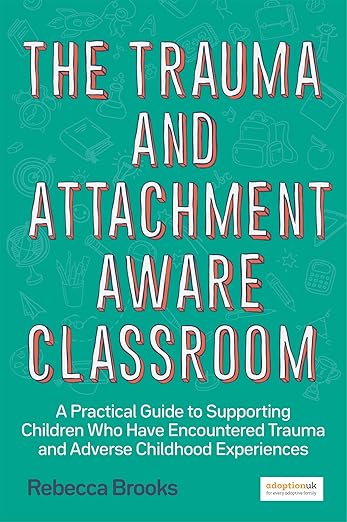 The Trauma and Attachment-Aware Classroom is an essential guide for educators looking to better understand and support children who have experienced trauma and attachment difficulties. Brooks draws on her background as a teacher, foster carer, adoptive parent, and Education Policy Advisor for Adoption UK, to offer an insightful perspective on how trauma affects children's ability to form connections and thrive in educational settings.
The Trauma and Attachment-Aware Classroom is an essential guide for educators looking to better understand and support children who have experienced trauma and attachment difficulties. Brooks draws on her background as a teacher, foster carer, adoptive parent, and Education Policy Advisor for Adoption UK, to offer an insightful perspective on how trauma affects children's ability to form connections and thrive in educational settings.
Using real-life examples from UK schools, Brooks provides guidance on how to adapt teaching strategies to better support these children, enhancing both their learning and well-being. She offers clear illustrations of how traditional school approaches can inadvertently affect children with trauma or attachment issues. The book also outlines alternative, trauma-sensitive, approaches that create more supportive classroom environments. Through this, she outlines a clear roadmap for positive transformation, encouraging meaningful change in schools.
Brooks provides key reminders of how early trauma can be displayed in a child’s behaviour, often becoming apparent in the classroom. She offers strategies for teachers to recognise and address triggers, helping children navigate their emotions and better cope with challenging situations. Therapeutic approaches such as PACE (Playfulness, Acceptance, Curiosity, and Empathy) and NVR (Non-Violent Resistance), are highlighted as practical tools to support the emotional and intellectual growth of children and young people. This book is a great resource for educators who want to create a nurturing environment for children affected by adverse childhood experiences.
What did you think of this month’s recommendations? How did they help develop your practice? Tweet your response using #MeddwlMawr
Why not try using the tools in the PLP to reflect on the ideas from this month’s recommendations and how you can apply them to your own practice?
Have you been inspired by our recommendations, and want to share what you’ve learnt with your colleagues? Read our guide to setting up a journal club.


